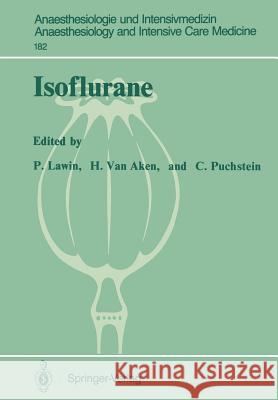Isoflurane: 2nd European Symposium on Modern Anaesthetic Agents (Münster, December 12-14, 1985) » książka
topmenu
Isoflurane: 2nd European Symposium on Modern Anaesthetic Agents (Münster, December 12-14, 1985)
ISBN-13: 9783540165743 / Angielski / Miękka / 1986 / 340 str.
Kategorie BISAC:
Wydawca:
Springer
Seria wydawnicza:
Język:
Angielski
ISBN-13:
9783540165743
Rok wydania:
1986
Wydanie:
Softcover Repri
Numer serii:
000403445
Ilość stron:
340
Waga:
0.61 kg
Wymiary:
24.4 x 17.0
Oprawa:
Miękka
Wolumenów:
01
Dodatkowe informacje:
Wydanie ilustrowane












